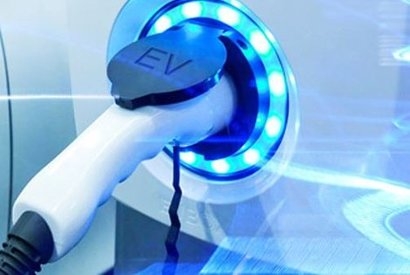
The Taskforce will, for the first time, bring together the energy and automotive industries to plan for the changes that will take place as a result of rising electric vehicle use. The Taskforce, for which the LowCVP will provide secretariat functions, is chaired by Phil New, Chief Executive of the Energy Systems Catapult.
The objective of the Electric Vehicle Energy Taskforce is to put engaging the electric vehicle user at the heart of preparing the electricity system for the mass take up of electric vehicles. It aims to ensure that costs and emissions are as low as possible, and opportunities for vehicles to provide grid services are capitalised upon for the benefit of the system, energy bill payers and electric vehicle owners.
The anticipated growth in the use of electric and plug-in vehicles over the coming years will create challenges and exciting new opportunities for the rapidly evolving UK electricity supply system.
Plug-in electric vehicle use has been increasing sharply in the last few years, albeit from a low base; representing over 4 percent of new car sales for the latest month for which figures are available (Aug 2018). The Road to Zero strategy confirmed the Government’s commitment for all new cars and vans to be zero emission vehicles by 2040. The vast majority of these vehicles are expected to be fully or partly electrified.
Meanwhile, the UK’s energy generation system is also rapidly changing. In the short term, the rollout of smart meters and electric vehicle charging infrastructure will offer opportunities for the energy sector to work with consumers to level off electricity demand. By 2050, the UK will be powered by low, or zero, carbon electricity generation and, increasingly, by distributed renewable sources. The intermittent nature of renewable generation – providing surpluses at some times of day and deficits at others – creates a need (and a significant business opportunity) for new energy storage solutions. The batteries in electric vehicles (as well as those in ‘second life’) could provide a key missing link in the UK’s future energy supply ‘mix’.
Driven by the requirement to tackle climate change, the transformation in mobility and energy production creates great opportunities for innovators, holding out the prospect of significant UK exports and growth as well as greater security of energy supply.
“The UK is a world leader in the low emission and electric vehicle industries, and initiatives like the Electric Vehicle Energy Taskforce keep us at the forefront of this technology revolution” said Jesse Norman MP, Electric Vehicles Minister. “Bringing together government, automotive and energy sectors will help to ensure that Electric Vehicles become an integrated part of the UK energy system, and infrastructure upgrades can be planned in an efficient and sustainable way.”
LowCVP’s Managing Director, Andy Eastlake, added that the Electric Vehicle Energy Taskforce is a major initiative as the country stands on the brink of dual transformations in the ways it generates and supplies electricity and in the energy people use for transport. The Low Carbon Vehicle Partnership will bring its considerable experience and expertise in facilitating multi-stakeholder agreements to help tackle this issue – one of the biggest challenges and greatest industrial opportunities of our time.
The Electric Vehicle Energy Taskforce has already held a number of meetings and has established an agreed work programme and five initial work packages.
The launch members of the Electric Vehicle Energy Taskforce are:
Automotive Council
BEAMA
Energy Systems Catapult
Energy Networks Association
Energy UK
ITS University of Leeds
Low Carbon Vehicle Partnership (LowCVP)
National Grid
Ofgem
Office for Low Emission Vehicles (OLEV)
Society of Motor Manufacturers and Traders (SMMT)
TechUK
UK Electric Vehicle Supply Equipment (UK EVSE)
For additional information:

